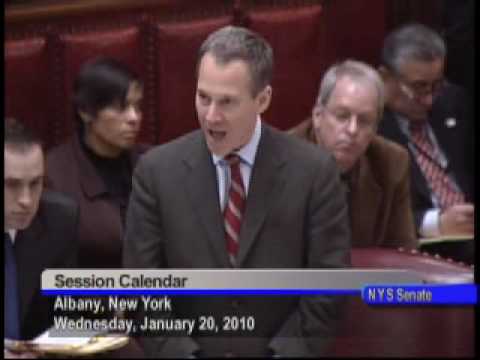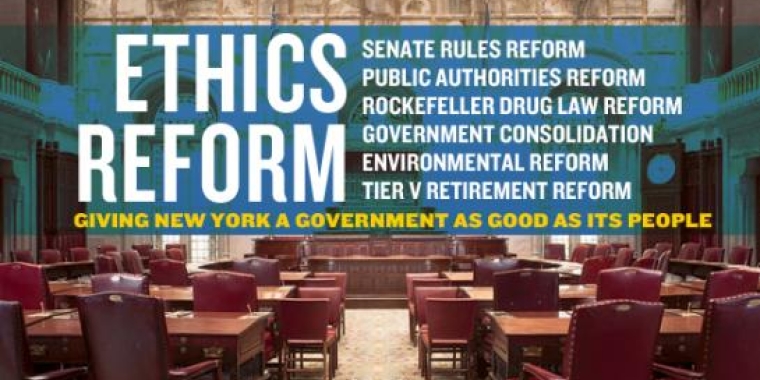Senate Passes Schneiderman Bill To Prosecute Domestic Abusers For Destroying Property
Eric T. Schneiderman
May 5, 2009
-
ISSUE:
- Codes
-
COMMITTEE:
- Codes
ALBANY -- The state Senate today overwhelmingly passed a bill (S4306) that strengthens the punishment for domestic abusers who engage in violence against a victim's property. Under current law, a person is not criminally liable for damaging shared property if he or she has either a right to do so or believes that right exists. That means if an individual destroys the property of a spouse or domestic partner, he or she could not be held criminally liable. The bill passed today, sponsored by Codes Committee Chair Sen. Eric T. Schneiderman (D-Manhattan/Bronx), protects victims of domestic violence by eliminating that overly restrictive requirement.
"Perpetrators of domestic violence should not be able to destroy a victim's property and go unpunished," said Sen. Schneiderman. "For too long, New York looked the other way and silently approved this kind of criminal behavior. As a result, the victims of domestic violence were victimized again by a criminal justice system that provided them no opportunity to hold their abusers responsible for malicious conduct. With the passage of this bill, those days will soon be over."
The bill clarifies that damaging property can be a criminal act, even if the person who destroys the property has an ownership interest in it. Moreover, a spousal relationship does not protect someone from prosecution.
"It doesn't matter if you are a spouse or a domestic partner, if you're intentionally destroying a victims property, there will be consequences. When a crime has been committed, no relationship ought to shield abusers from prosecution," added Schneiderman.
The bill passed in the Assembly 146-2 in February and Gov. Paterson indicated he will support it.
Share this Article or Press Release
Newsroom
Go to NewsroomSen. Schneiderman On the Senate Floor Discussing Ethics Reform
January 23, 2010

Senate Passes Sweeping Ethics And Election Law Reform Legislation
January 20, 2010
